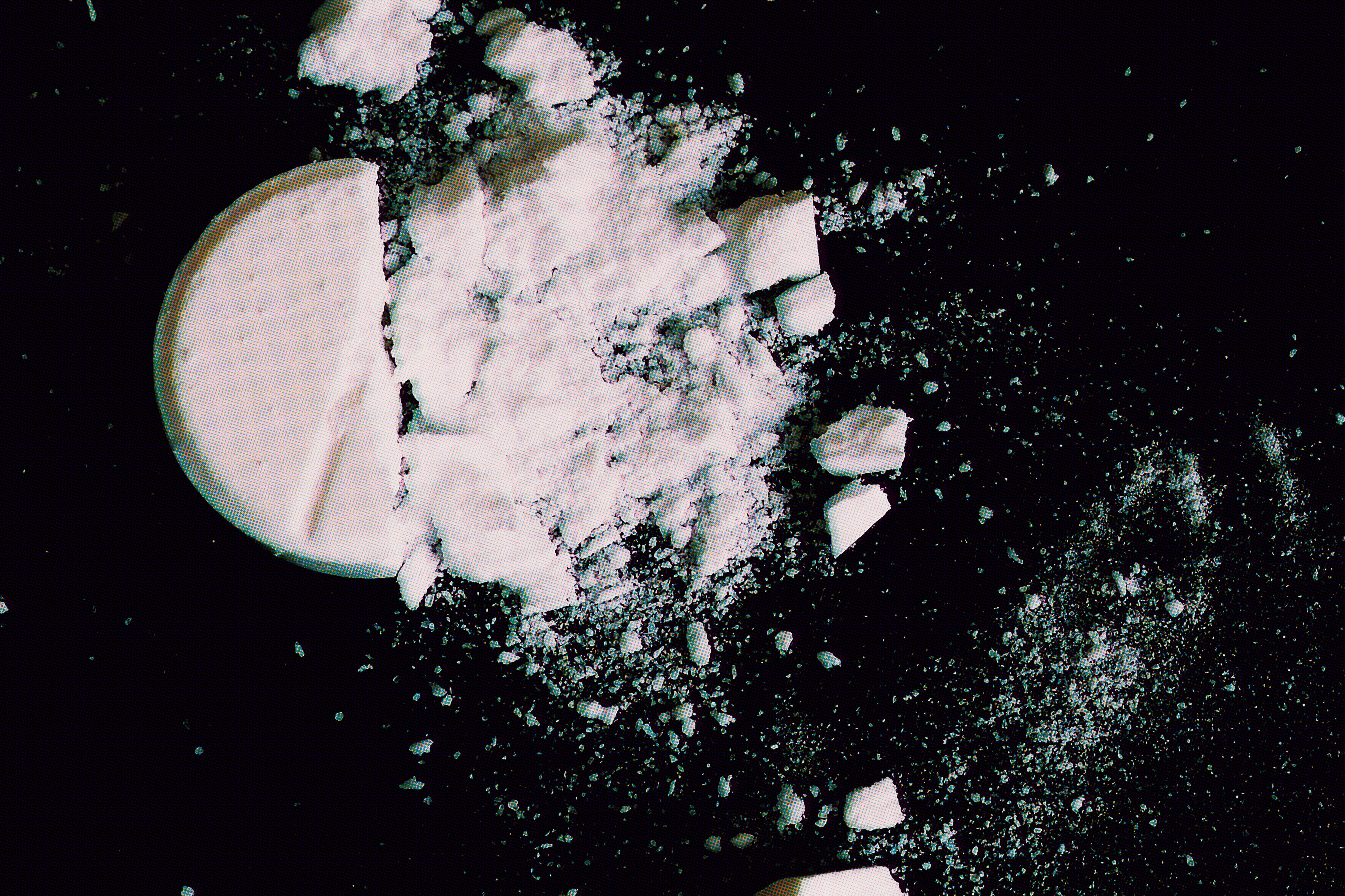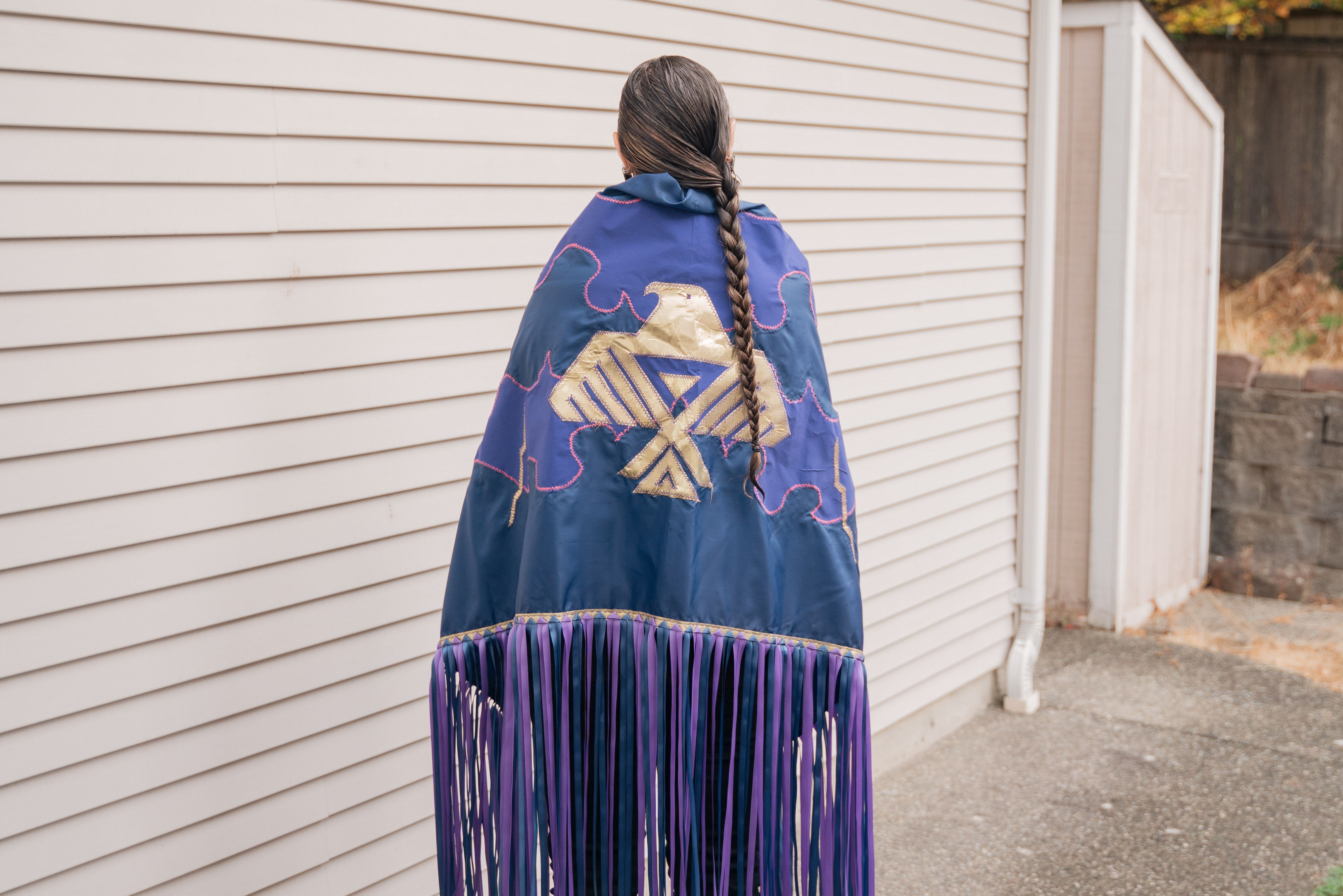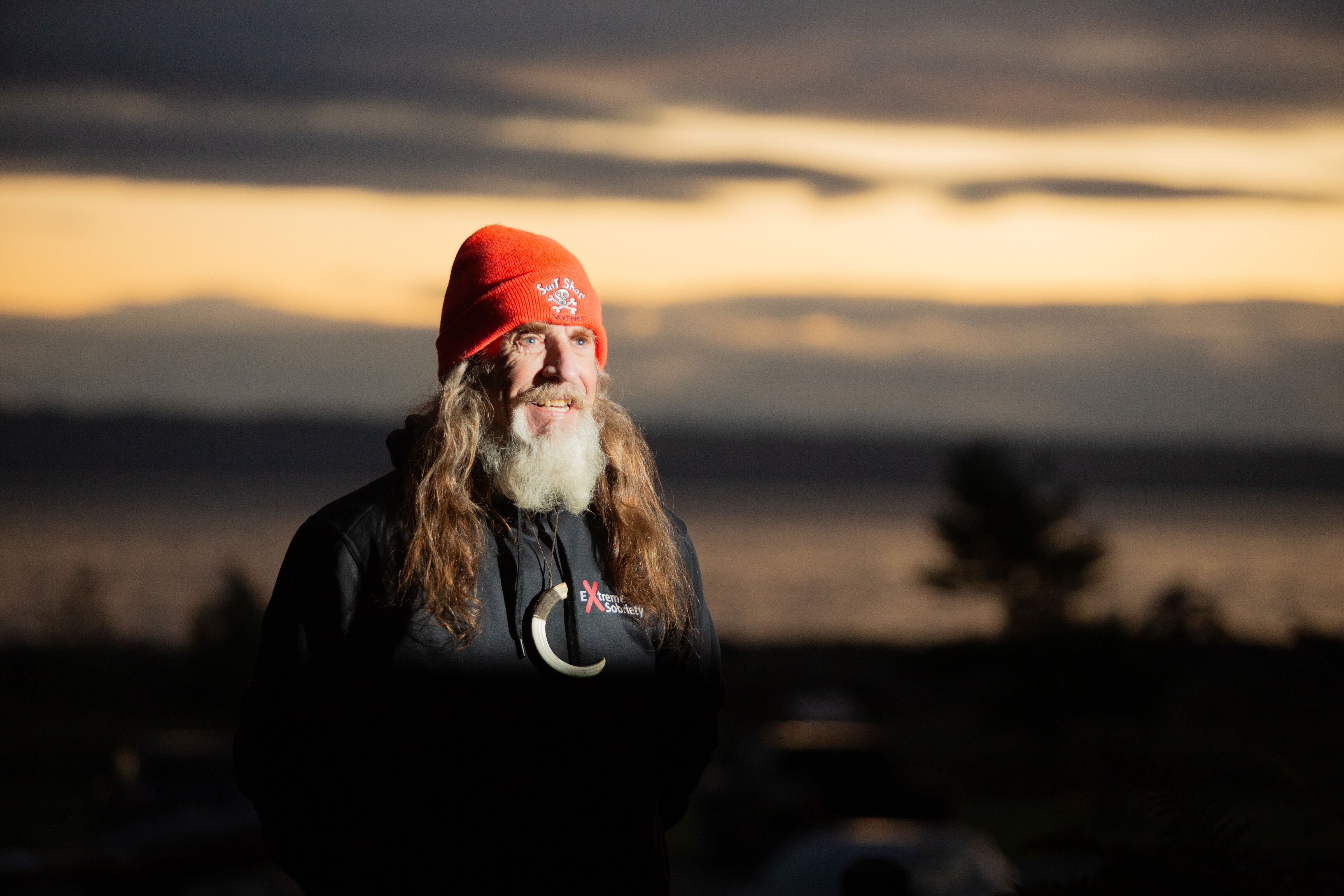
Marine Vet Steve Rhoades Has Made Helping People Out of Addiction His Life’s Work
Central to Stanley Kubrick’s Full Metal Jacket is the screaming, beet-red face of Ronald Lee Ermey, an actual US Marine Corps drill instructor who portrayed the film’s Gunnery Sergeant Hartman. When Ermey died in 2018, a New York Times piece contended that his immortal performance had inspired boot camp ethos around the US military, much in the way that The Godfather inspired the speech patterns of actual mafiosos. But Bainbridge-based marine corps veteran Steve Rhoades, 71, says that Ermey’s performance was simply par for the course—he saw it every day of his childhood.
“I was raised at Parris Island,” says Rhoades, referring to the film’s South Carolina training facility. “I know every building in that movie. Yeah, that guy is like my dad.”
Rhoades’s father was a 27-year US Marine who spent three years and multiple tours in Vietnam, and during Rhoades’s youth worked as a drill sergeant at Parris Island. The real life Gunnery Sergeant Hartman. As the oldest of four boys, Rhoades followed in his dad’s footsteps and enlisted in 1973, aged 21. “I matured in the marine corps.”
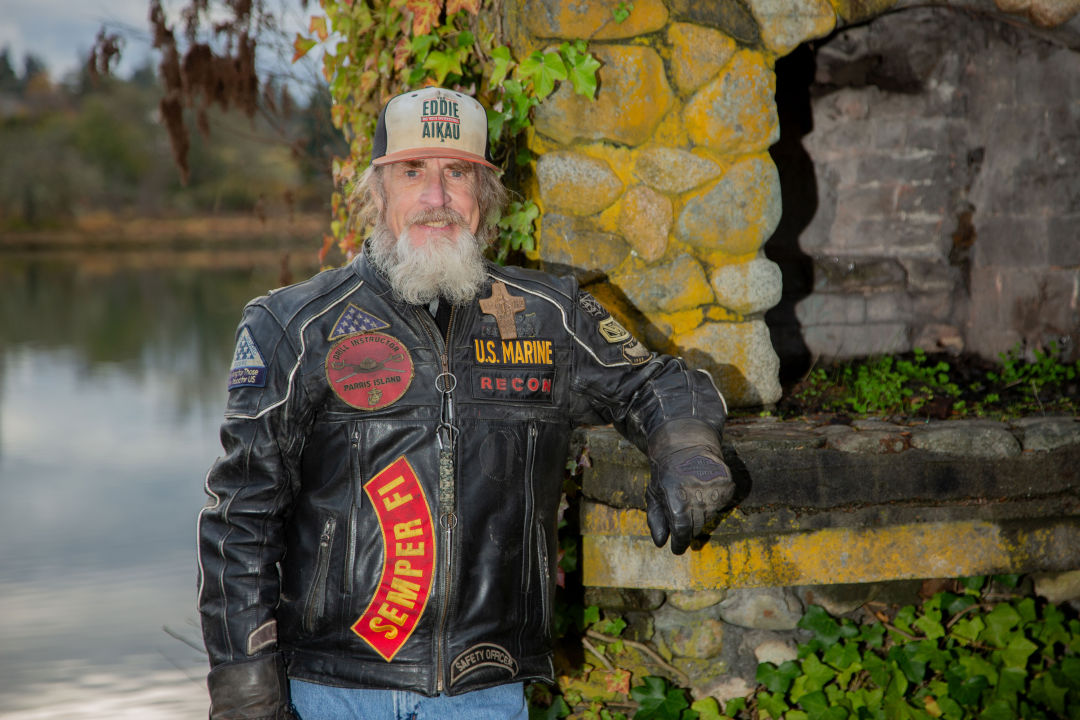
Image: Michael Guio
Rhoades spent six years in USMC Recon units, specializing in jungle warfare and survival. He bounced around postings on Okinawa and the Philippines, attended climbing school in Italy and earned a meritorious Corporal promotion. But his life was slipping. “I couldn’t afford to stay sober for 35 cents a drink,” he says with a sad grin. “It was acceptable back then, everyone in Recon drank hard. Everyone.”
“I drank my way out.”
After his service, he spent nearly two decades living an itinerant lifestyle, swapping one part-time job for another. “I’d just hitchhike around and stop at gas stations and bars to find a day’s work. I worked on the oil rigs, 21 days on, 21 days off, so I could sober up and get some good food in me. Same thing with the tugboat crews.” Thanks to his military upbringing and some high school years spent on an uncle’s Indiana farm, Rhoades says, “I knew how to work.”
This pattern led him eventually to the Pacific Northwest, where Rhoades planned to hire on with a fishing vessel. He wound up hitting rock bottom in what he calls a “whorehouse slash crack house” in Kent. After asking for help from God, he ran into a minister named Nyer Urness on the back of a city bus, who told Rhoades to wait for a bed at the Compass Center, a transitional housing service in Pioneer Square. Rhoades lived under the Alaskan Way Viaduct for eight days but finally got a spot. Urness later told him about an old cabin he had on Bainbridge. It didn’t have utilities, but Rhoades could stay there if he didn’t mind roughing it. “My time in the Marines saved me,” Rhoades says. “If I had a poncho, or a piece of cardboard, I’m good.”
He moved out to the island and found work across the water as a downtown bicycle messenger. Sometimes he’d accompany Urness on long walks around the business district, its streets full of Vietnam vets like his dad. There’s a way out, Rhoades would tell them. You can’t see it, but I can. Because I’ve been exactly where you are.
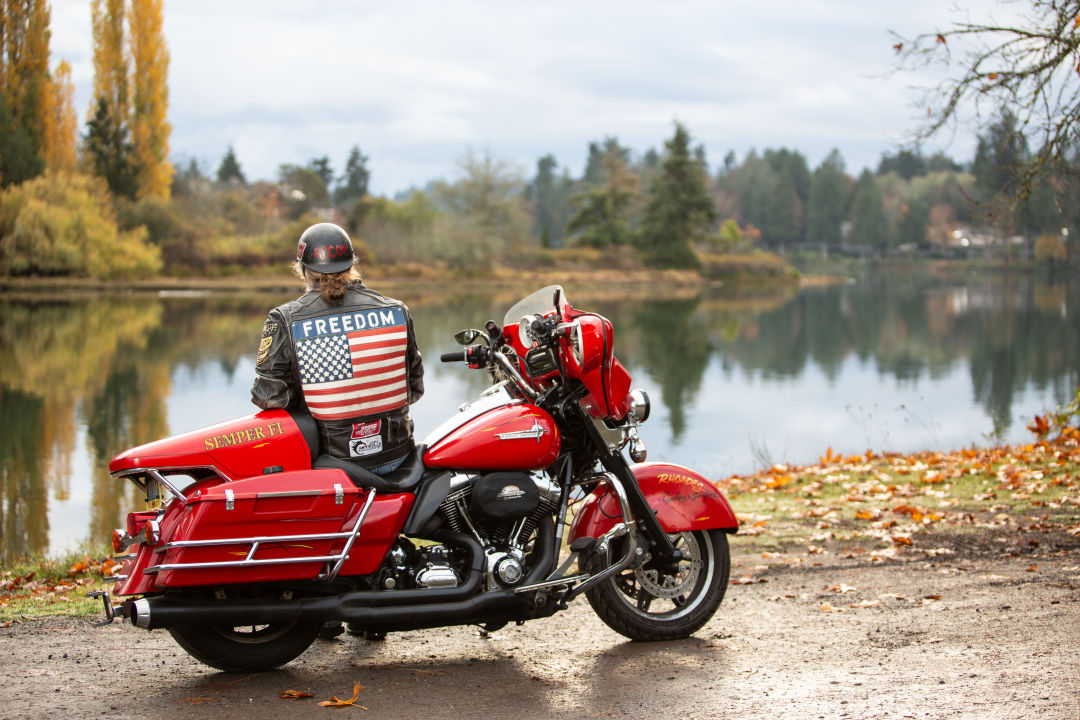
Image: Michael Guio
Ever since, showing people a way out has been the singular mission of Rhoades’s life. Aside from his exercise regimen—more on that in a moment—he spends much of his time and energy assisting others on their continued journeys out of addiction. Last week marked Rhoades’s 23rd consecutive year of sobriety. He also celebrated the fifth anniversary of Dawn Patrol, a recovery support meeting he runs at 7am each weekday at Fay Bainbridge Park. Rhoades has spent the last 31 years on Bainbridge and is an integral part of the island’s sober community. At the root of his personal drive is a marine corps attitude handed down by his father: “Stay out of politics. Just bring your brothers home alive.”
His father was talking about Vietnam, but the sentiment pertained to Rhoades’s time in downtown Seattle. “I saw the homeless every day,” he says. “They got to know me, and knew I was one of them. I started helping those guys out.” After Urness passed away in 2006, Rhoades would fill a stroller with winter hats and candy, and push it around the city as a Good Samaritan. “I sit down and actually talk to them. I show them how to help themselves.”
Rhoades hurt his leg in a surfing accident in 2015 and took a step back. He’s since recovered from the injury but hasn’t resumed his stroller act due to the rise of fentanyl use. “It makes people unpredictable,” he says.
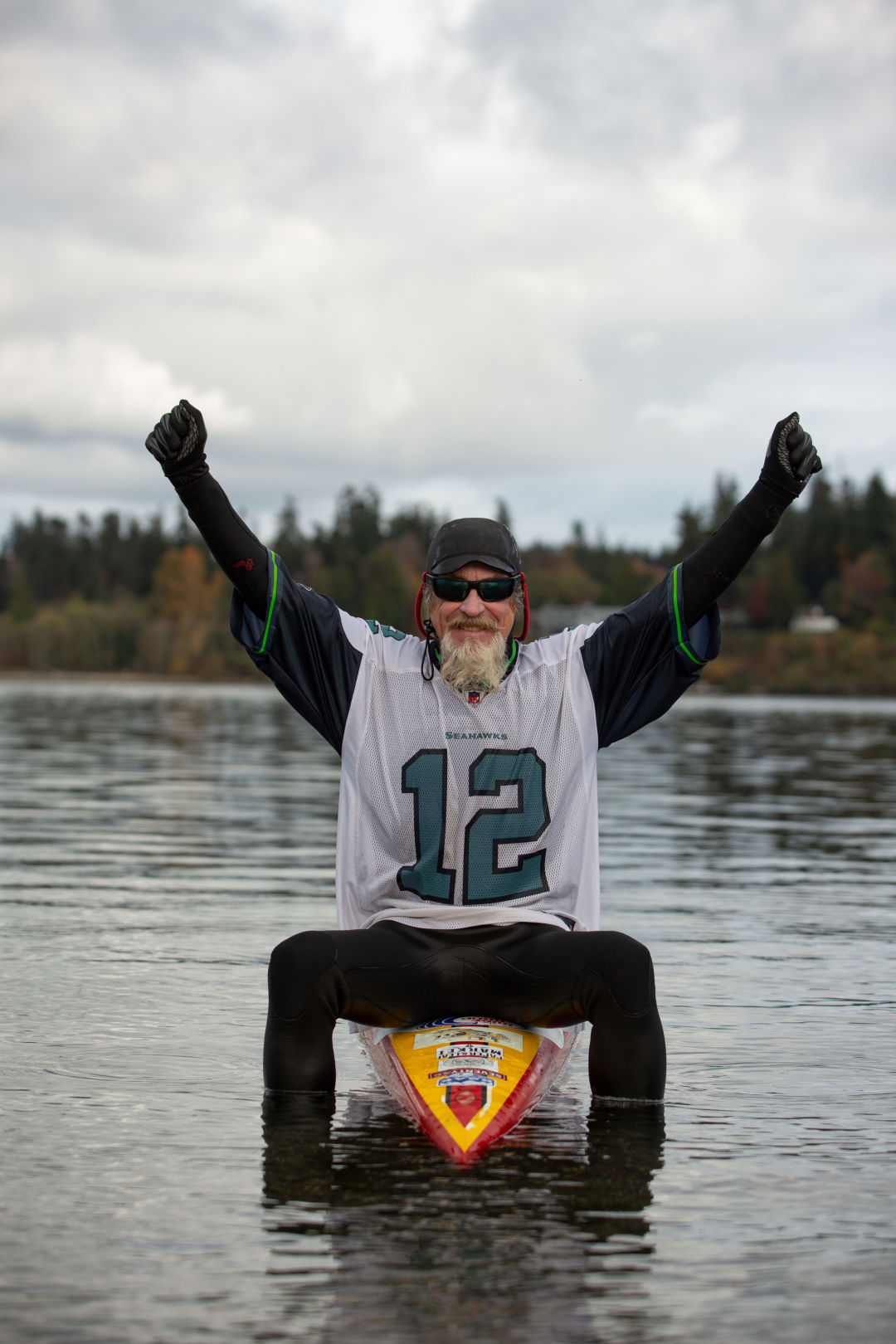
Image: Michael Guio
Asked about what the media gets wrong about homelessness and addiction, Rhoades grows animated. He says there are only two lanes to confronting addiction. The effective option is to offer people year-long, fully paid stays in detox and rehabilitation centers. “A year,” he repeats. “Not a month. They provide clothing, food, everything.” Rhoades admits the bill would be staggering, the process complex. But he uses the analogy of a seal dying on a Washington beach. “You’d do anything to help it out,” he says. “And all these people on the street, they’ve got something inside them.”
Then there’s the undesirable second path. In Rhoades’s opinion, lesser assistance constitutes enabling. “This holding hand crap doesn’t work. You’re killing them.” Rhoades’s brother and father both died from alcoholism. He’s lost countless friends to addiction. “The detox center has to be for a year,” he says. “It takes extreme measures to change your life.”
This last bit is a motto for Rhoades’s current one-man organization, eXtreme Sobriety. The ruby red “X” logo is printed on Rhoades’s paddleboard, where he spends a lion’s share of his time—he’s out on the water most mornings by 3am, even in the rain. (The day we meet up, he sends me a pitch black workout video. Above the sloshing water comes Rhoades’s voice: “Another beautiful day out here!”)
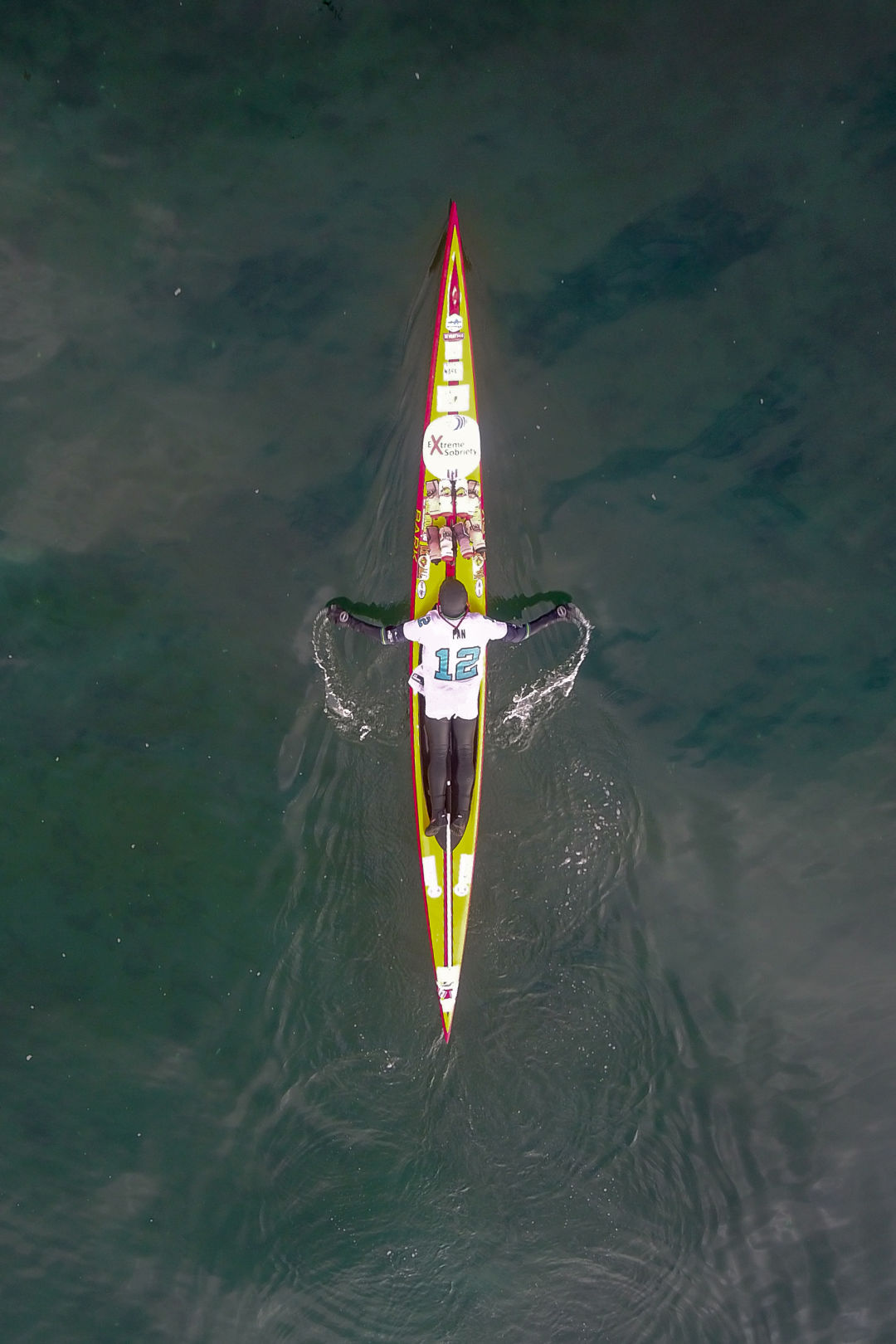
Image: Michael Guio
Rhoades’s paddleboarding obsession is an extension of a training habit that began in the marine corps and persisted through stints of difficult manual labor. Rather than use a paddle, he lies prone on the board and pulls with his hands, like a surfer swimming out past the breaks. Rhoades uses exercise as an anchor for his sobriety . It’s what keeps him focused. “You have to have something to sober up to,” he says. “That’s the trick.”
Nine years ago, aged 63, Rhoades paddled all the way around Bainbridge and immediately hopped on his bike to cycle its perimeter (the Chilly Hilly). In 2018 he entered his solo paddleboard in the Race to Alaska, a grueling open water haul from Port Townsend to Ketchikan. A sudden pang in his newly replaced hip—“the doctors told me not to do it”—left him reeling when he pulled his board out for a photo shoot at Kingston. Rhoades used the publicity from that event to raise money for charity. He’ll do the same on his 72nd birthday next year, when he’ll paddle for 24 consecutive hours between Eagle Harbor and Blakely Harbor to raise funds for the UW Medicine Regional Burn Center at Harborview, which nursed him to health after a bike accident deskinned his leg in 1995.
As Rhoades tells it, he’s just trying to even the scales. He’s full of gratitude for those who’ve helped him over the years, and sees it as his job to convey that goodwill to others, including fellow veterans. Rhoades’s passion for life, he says, is a testament to his old Recon units. His journey into addiction might’ve been precipitated by his time there, but his path out wouldn’t have been possible without it. “I’m still cleaning up my past,” he says. “If I don’t, I’m a dead man.”
